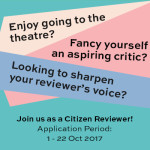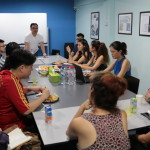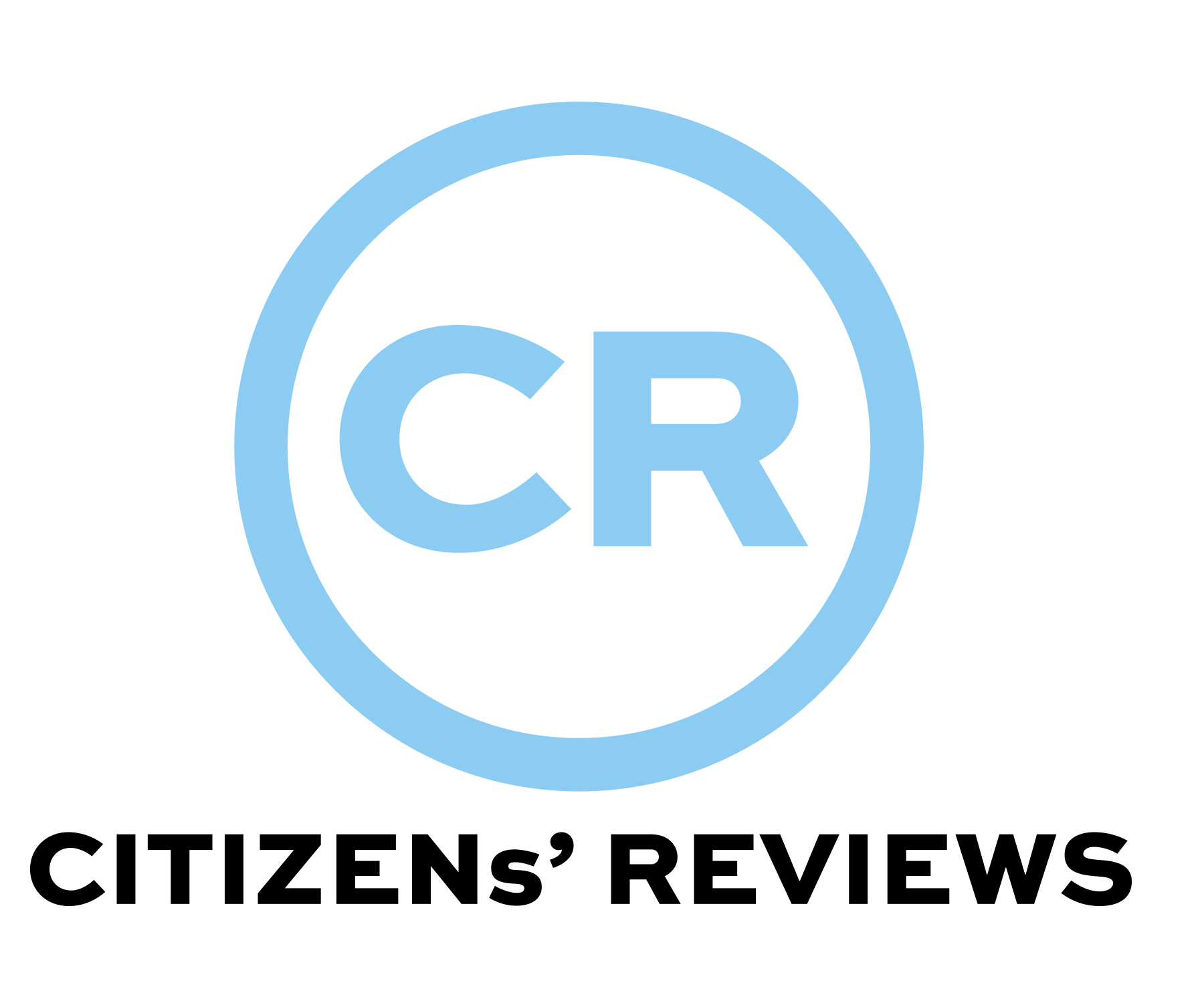Centre 42 is currently looking for aspiring theatre critics to join the 2018 cycle of Citizens’ Reviews! The programme is about to enter its fifth edition, and in this series of interviews, we ask our current reviewers to share more about what the journey has been like for them, as well as what they make of the arts criticism scene in Singapore right now. First up we have Isaac Tan, who has been with us since the very first pilot cycle of Citizens’ Reviews in 2014.
If you’d like to apply to become a Citizen Reviewer for our 2018, we are currently accepting applications until 22 October. Find out more about the open call and how you can get involved here.
You’re the only reviewer who’s been with us from the first pilot cycle to now – how do you think the programme has evolved over the years?
Gosh, I realised I have been doing this for four years now! Well, the programme started out as a platform to allow anyone to gain some exposure to theatre reviewing, and we have amassed quite a collection of reviews. We have been doing that for two or three years now, and [Dr. Robin Loon, the editor of the programme] has kindly asked some of us to stay on.
As my colleagues and I have gained more confidence, the programme seems to be gearing towards professional development. It is no longer a matter of expressing our opinions and giving adequate reasons, it also about how we do it – the craft of writing. Furthermore, we are starting to have more workshops this year. Dr. Loon also spent some time discussing issues that we would face as critics in the arts industry.
In terms of content, I am glad that some of my fellow reviewers are theatre practitioners with considerable experience. I enjoy reading their opinions, especially when they contextualise a certain show within the history of our theatre scene – a scene which they were part of and helped to shape.
What did you learn from the programme?
As with any artistic practice, and I consider theatre criticism to be a practice, the main point of it is in the doing. The programme has allowed me to find my voice as a critic without having to worry about very tight deadlines (unlike my colleagues in the mainstream media), or readership. It has allowed me to focus solely on my writing.
What were some of the challenges you faced as a Citizen Reviewer?
The main challenge would be getting my point across to my reader clearly, while maintaining my personal voice. How do I give myself the freedom to experiment with the way I write, while providing something of value to my reader?
What do you think of the arts (and especially theatre) reviewing scene in Singapore right now?
The most encouraging thing is that the National Arts Council is turning its attention to arts writing and is supporting initiatives such as ArtsEquator. The arts reviewing scene has to grow outside of the mainstream media, because the newspaper critics, due to the limitations of their respective publications, are journalists who are tasked to write reviews.
The main problem is how do we make theatre criticism a viable career.The only way for the whole arts scene to grow is to have professional critics who have some knowledge, and is able to stay the course because being a witness to the epochs of our theatre history is the most valuable asset a critic can have.
A related problem is how do we develop a responsive readership? Right now, the conversation, if there is any at all, is between the reviewer and the reviewed. How do we broaden the conversation to include, at the very least, the avid theatre-goer? These conversations are not meant to stroke the egos of the practitioners, but they help the scene to grow. Furthermore, when it comes to sensitive issues like funding, the opinions of those who watch the shows are crucial. Otherwise, anyone (authorities and practitioners alike) can prescribe what the arts scene should be based on the nebulous idea of what “the people” wants, or is ready for.
If you are an avid theatre-goer and do read reviews from time to time, I encourage you to share your opinions with me. Write to Centre 42 and tell them why I am a fool to praise or criticise a certain work. I’ll be happy to respond to what you have to say. You don’t need to write a full review, it could simply be a response to one of my points. That’s all it takes.
There are many other issues that we need to consider, but the ones I mentioned are the main ones.
Who are some of the theatre critics you follow/enjoy reading?
Kenneth Tynan is a sheer joy to read, and he has an influenced my writing considerably. Apart from his unmistakable style, I admire his vivid descriptions, and his ability to contextualise the show within the history of British theatre. Of course, he is of his time, and some of his approaches to reviewing will simply be unacceptable today.
Online, I will usually read reviews from the Guardian and Observer (Lyn Gardner, Michael Billington, Susannah Clapp) as the format and limited word count is quite aligned with Citizens’ Reviews. For books, I have started on John Simon’s anthology (a sharp but controversial writer). The collections by Harold Clurman and Joyce Macmillan are sitting on my bookshelf patiently.
Whenever I am stuck, I will consult random reviews by all of them just to get me into the groove of things again. I consider them to be my tutors in theatre criticism as well.
Interview by Gwen Pew on 26 September 2017
Find out more about the Citizens’ Reviews programme here.





